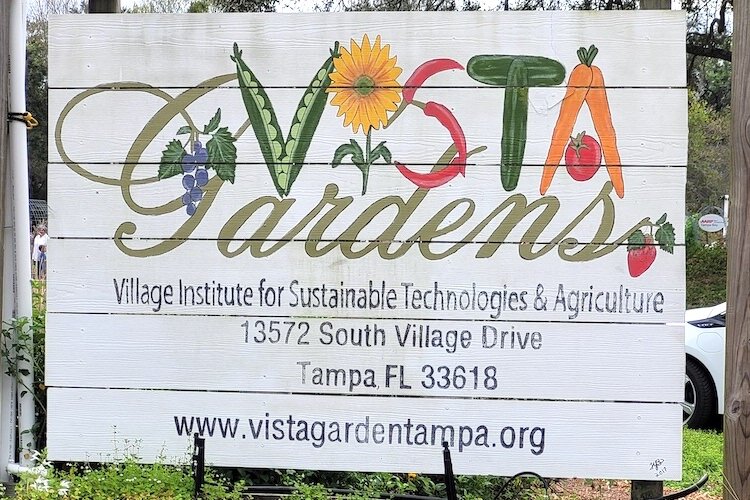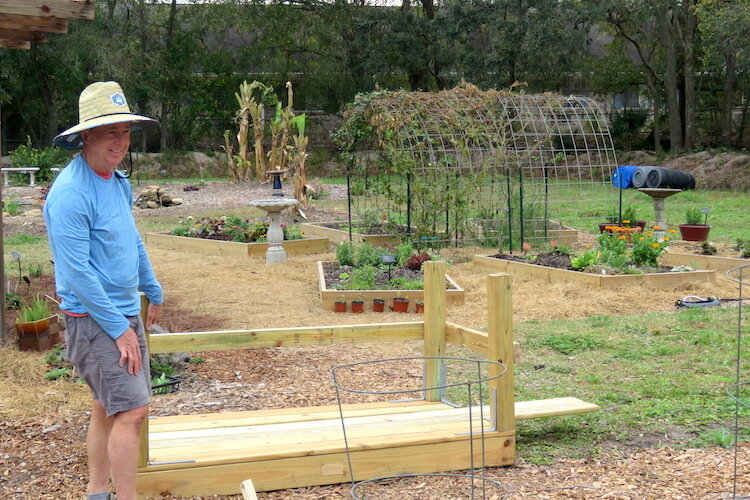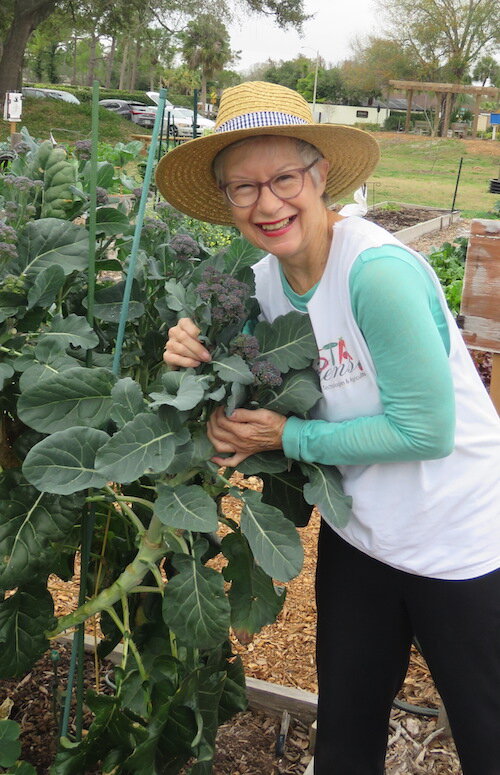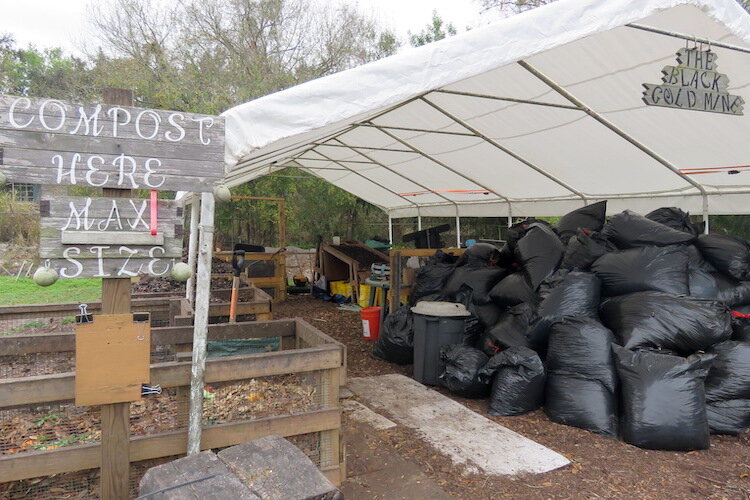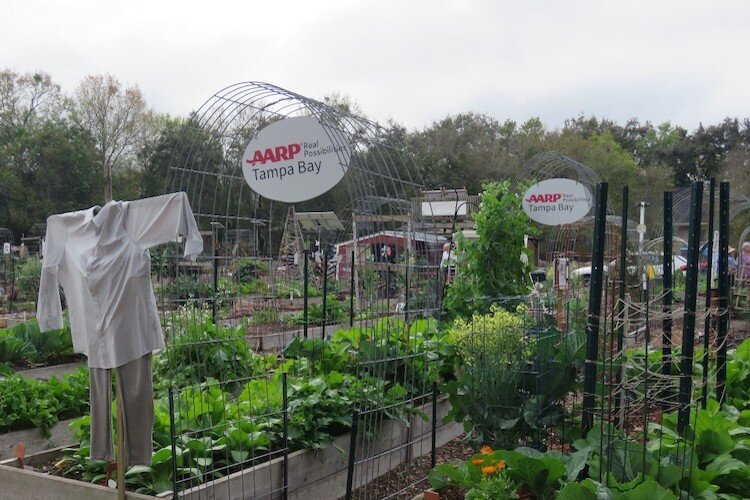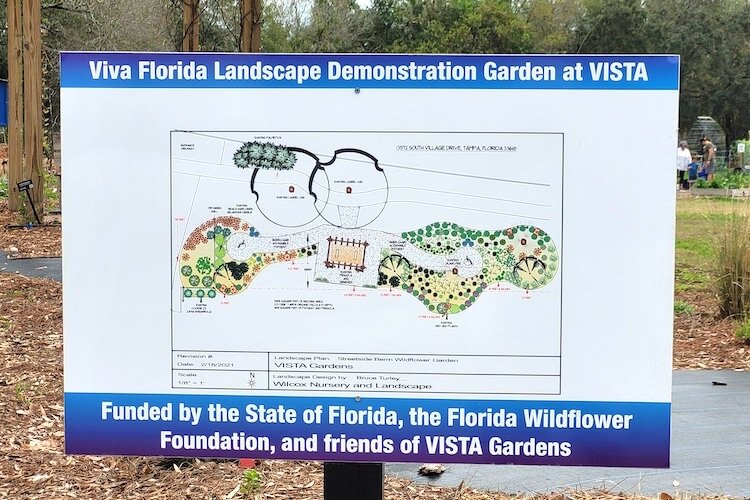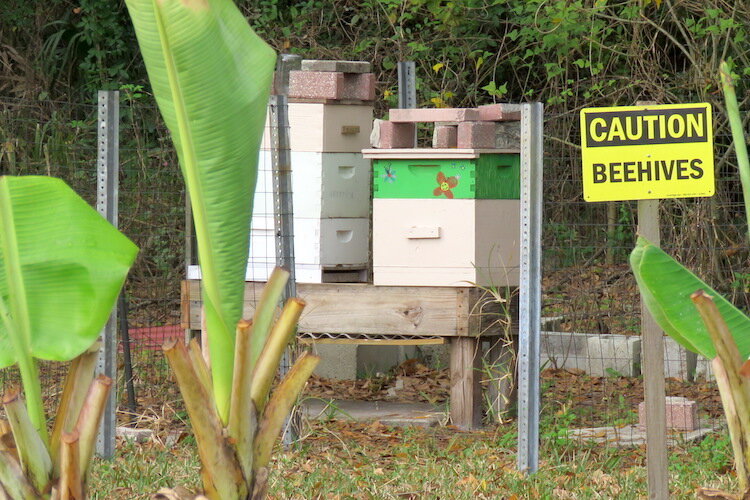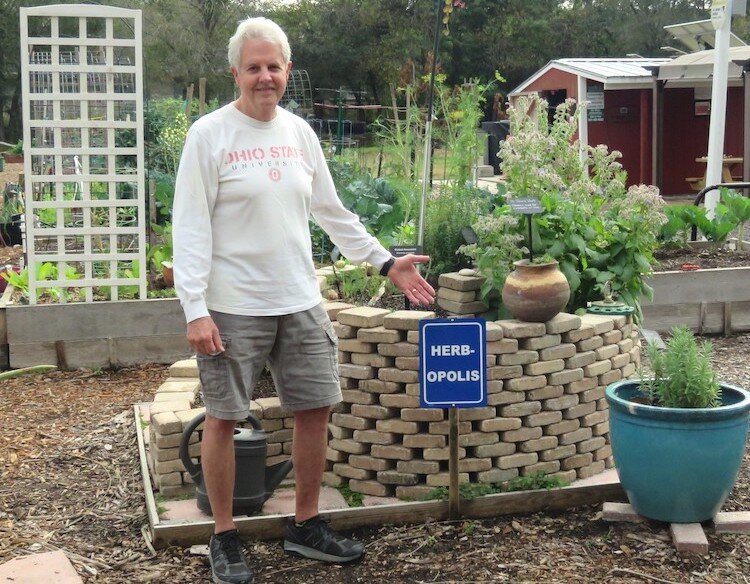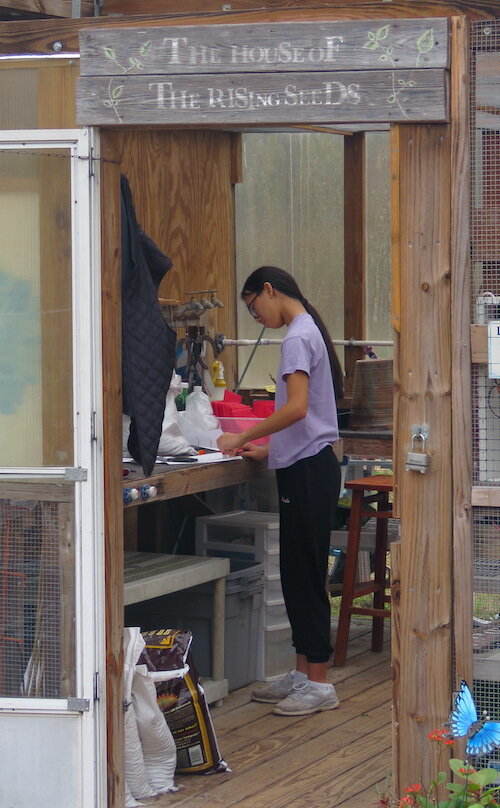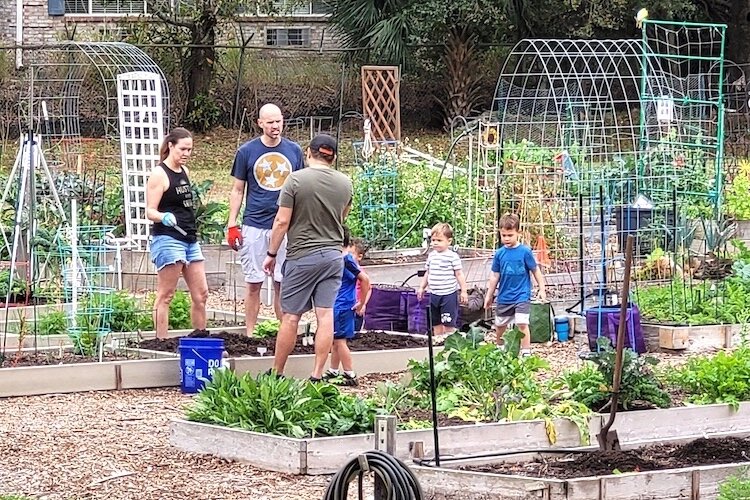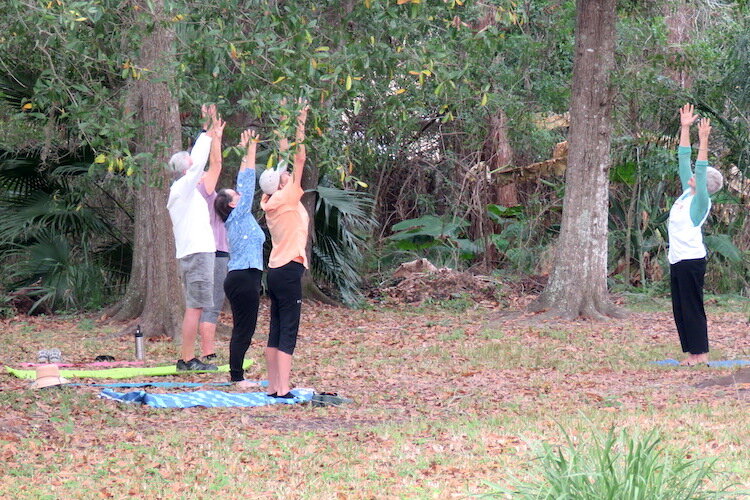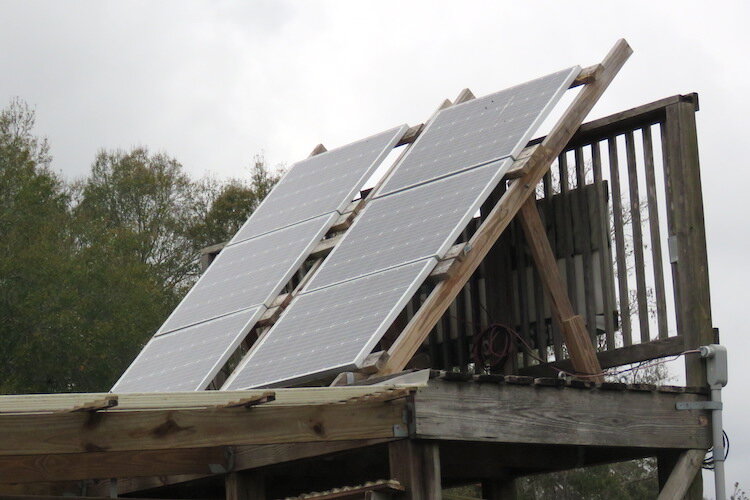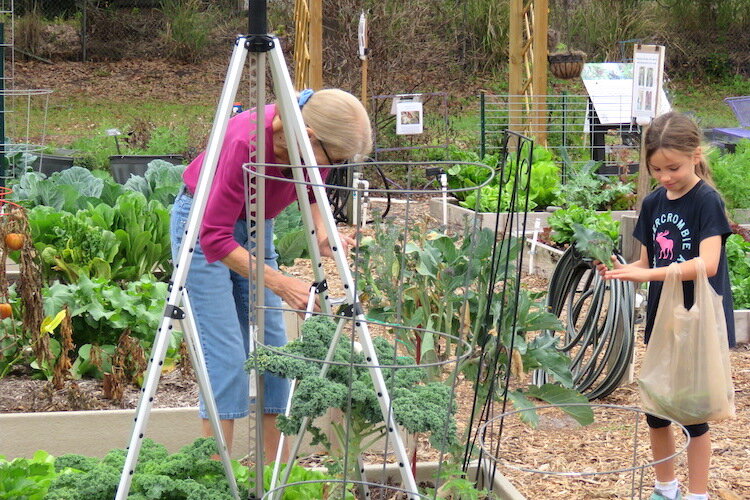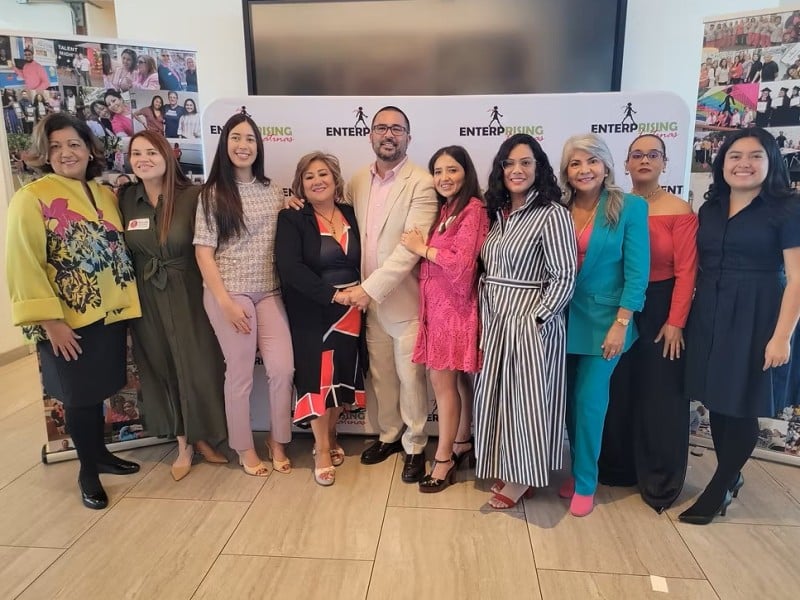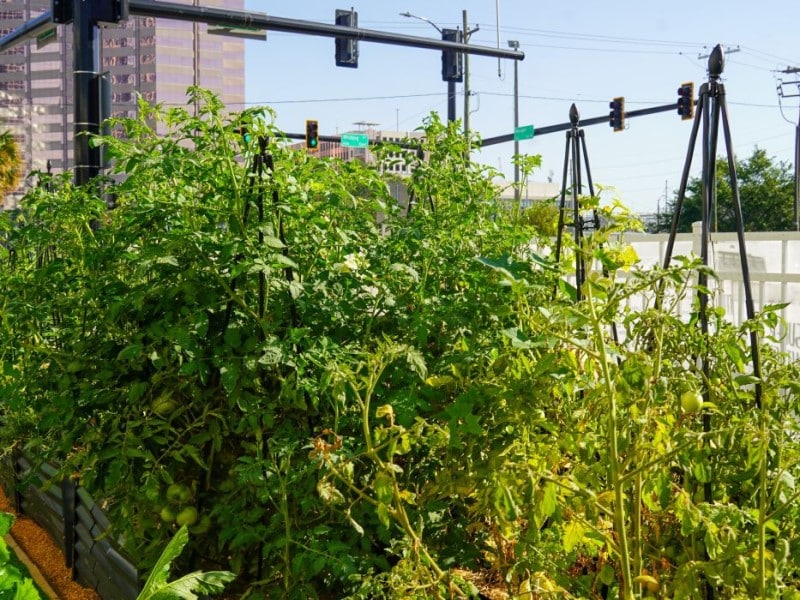Carrollwood community garden feeds so many needs
When neighbors opened VISTA Gardens on the site of a former water treatment plant in Carrollwood Village back in 2014, no one quite envisioned how much it would provide sustenance beyond fresh veggies and herbs to Tampa families and friends so many years later.
Looking at VISTA Gardens in the Carrollwood Village neighborhood of northwest Tampa, it’s hard to believe the 3.31 acre organic garden was once an abandoned water treatment facility.
The transformation didn’t happen overnight.
In 2008, a coalition of three Carrollwood Village homeowners associations formed a non-profit 501 (c) (3) to create a full-fledged community organic garden. With the support of Hillsborough County commissioners, the pioneers agreed to lease its current space from the county for “pocket change.”
Then came the hard part, clearing the overgrown land. The early group, including current VISTA Gardens President Jennifer Grebenschikoff, was indefatigable in working to achieve today’s vision. “It took several years to clear it but, with just 6 plots and 10 active members, we finally opened in 2014.”
Today, Hillsborough County’s “first garden park” features over 70 raised cedar beds, mostly measuring 4×16 feet and tended by seasonal gardeners who are passionate about their native vegetables, flowers and being part of what has become a family. There’s even a waiting list to join.
Rolfe Evenson, who is on the membership committee, expects those waiting to become members soon. “There’s turnover. People are burnt out, returning to the office now (after working from home) and some are moving to other areas.”
The growing season begins August 15th and runs through June 15th.
Membership to rent a bed is currently $150 per season. Members are expected to bring their own vegetable seeds and organic fertilizer. They are also required to put in two hours of volunteer time per month in addition to working their own beds. Many are working overtime.
Deb Ramos who moved from New England to Northdale in October, has become a fixture at VISTA Gardens. “As an avid gardener, this is everything I wanted” she says enthusiastically. “I’m growing so much of my own food.”
For those who just want to bring a lounge chair and soak in the atmosphere, there is a social level of membership for $25 per season. There are 105 individual and family seasonal members and 75 social members. They are not required to live in Carrollwood Village but they must be Hillsborough County residents. Some hail from all over the world and all walks of life. There are a number of older members, including a retired rabbi, who bring their passion and knowledge to the gardens.
The local chapter of the American Association of Retired Persons, AARP of Tampa Bay, has a group that has been gardening together for three years to benefit the food pantry at the Village Presbyterian Church in Carrollwood. AARP sponsors two raised 4 foot X 16 foot double-beds that produce a staggering average yield of 660 pounds of food each season.
“Sometimes, they can’t give it all away so it winds up back here in the compost area, along with fruits and vegetables from members’ kitchens,” explains Evenson. “Nothing goes to waste here.”
Benefits of living off the land
None of the fruits, vegetables and flowers that are grown at VISTA (Village of Institute for Sustainable Technologies and Agriculture) Gardens are for sale. “Having a garden makes a lot of people think about eating healthy for the first time” explains Grebenschikoff. “There’s the obvious economic benefit as well.”
Grebenschikoff is especially proud of the sugar snap peas and broccolini that she grows with Barb Mahlmeister, Chair of the Education Committee. “If you plan your garden well, you shouldn’t have to buy ANY vegetables.”
You shouldn’t have to buy any herbs either. Vicki Kuse, a social member, spends her time tending to herbs, which ALL members are welcome to harvest for their own use.
“Right now, we have all kinds of tropical sage, spearmint, peppermint, chocolate mint and pineapple mint.” There’s also “Oreganoland,” “Basilville,” “Thymetopia,” “Mintmania,” and “Herbopolis.”
To get VISTA Gardens to work, part of the preparation involved sinking a 200-foot well that taps into an aquifer. Water is pumped by solar power.
Not only do you need water and fertilizers to make things grow, you need bees. There are active bee hives off to the side of the garden. “The owner of the hives keeps the honey,“says Evenson, “but we get the bees to pollinate our gardens (along with Monarch butterflies). It’s a win-win situation.”
Educational and intergenerational
At VISTA Gardens, you can find high school students putting in their community service hours. The first thing they’re asked is “where do vegetables come from?” The answer you’re likely to hear is “a can.” The learning curve is steep for these youngsters but many remain engaged long after they’ve fulfilled their educational commitments.
You’ll also find families working their beds together. This warms the heart of Roberta Owens, a retired pre-school teacher who wears many hats including Chair of the Wildflower Garden Committee. Owens is developing a native wildflower garden on a berm at the property with a grant from the Florida Wildflower Foundation.
“There are 22,000 cars that pass by everyday along with strollers, walkers, runners and bikers,” she explains. “We hope to get them to watch the garden change with the seasons and maybe inspire them not to bring exotics into Florida but to grow native plants.”
It’s more than just gardening
VISTA Gardens features a multi-use pavilion where weddings and baby-namings have been held. You’ll also find members stretching and chanting in a yoga class on Saturdays twice monthly.
VISTA Gardens is a place to meet people, even your neighbors. Owens says, “people I didn’t know before I’m now running into at Publix.”
The garden became quite a refuge when the pandemic hit, although a lot of the classes, lectures and gatherings for children and adults have been cancelled for the time-being.
Members still socially-distance themselves but do partake in potluck dinners and Friday night happy hours. VISTA Gardens really IS a place where everybody knows your name.

